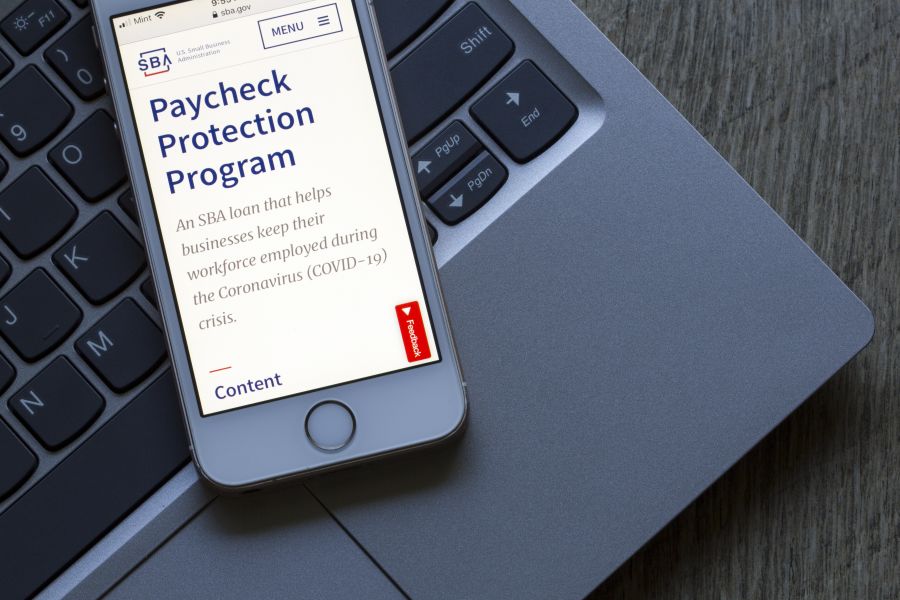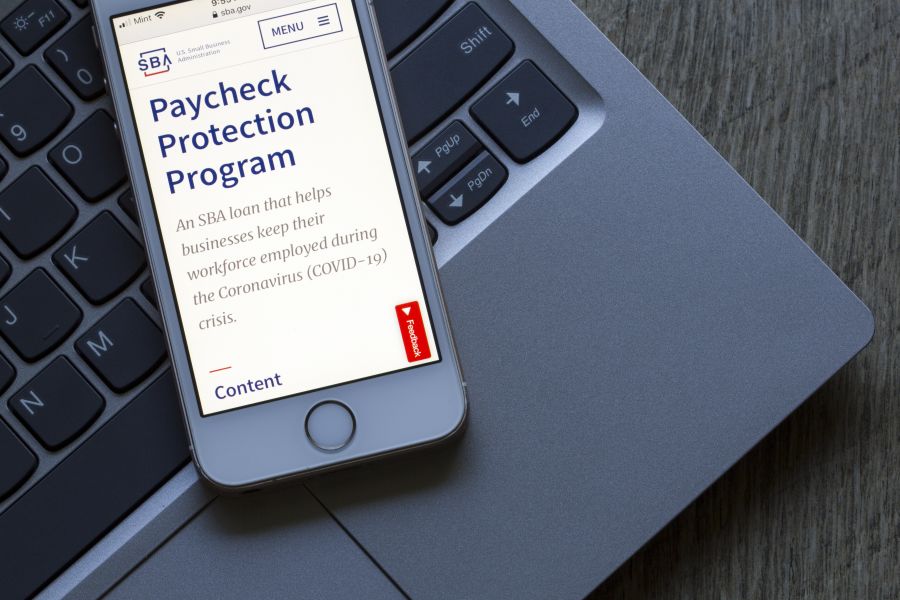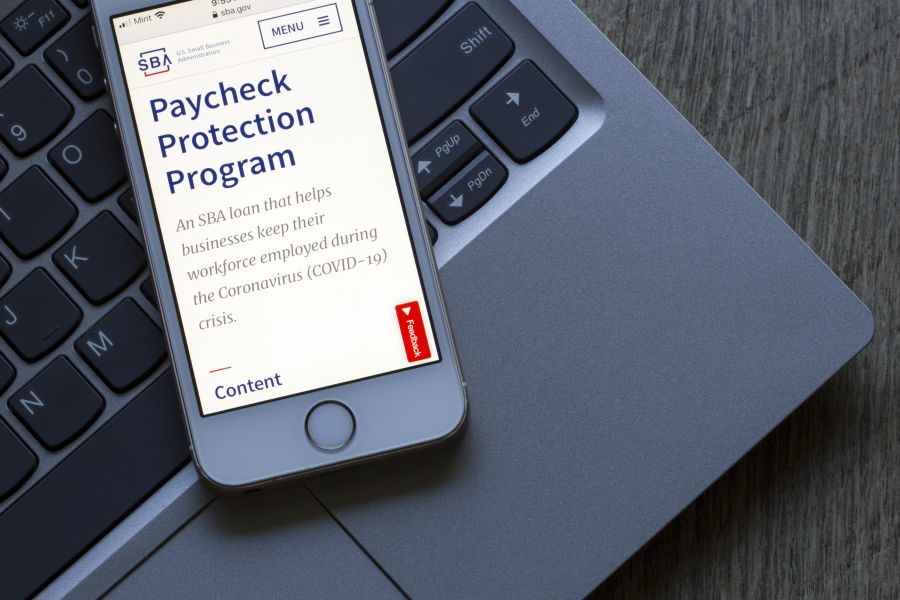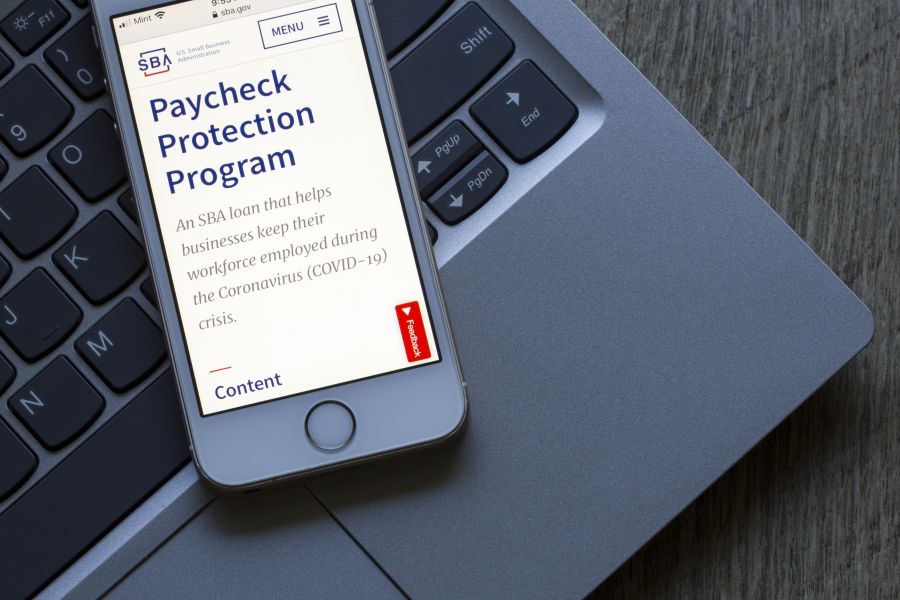A Procedural Notice has been released by the SBA to it's employees, as well as PPP lenders related to First Draw PPP Loan increases. Under the Economic Aid Act (EAA) in the Consolidated Apportionment Act (CAA 2021), certain borrowers may request an increase under certain conditions: First Draw Paycheck Protection Program Loan Increases After Enactment of the Economic Aid Act, 1/13/2021 SBA Procedural Notice Control No. 5000-20076 Increase to a First Draw PPP Loan The Economic Aid Act (EAA) permitted certain borrowers to re-apply or request an increase to a First Draw PPP Loan approved on or before 8/8/2020. In general, increases in the loan amount: may not exceed the maximum loan amount the borrower is entitled to under PPP rules, and may not exceed a total of...

In IRS Tax Tip 2020-80, the IRS explained new Form 1099-NEC, Nonemployee Compensation for business taxpayers who pay or receive nonemployee compensation. Starting in tax year 2020, payers must complete this form to report any payment of $600 or more to a payee. Generally, payers must file Form 1099-NEC by January 31. For 2020 tax returns, the due date is February 1, 2021. There is no automatic 30-day extension to file Form 1099-NEC. However, an extension to file may be available under certain hardship conditions. Nonemployee compensation may be subject to backup withholding if a payee has not provided a taxpayer identification number to the payer or the IRS notifies the payer that the TIN provided was incorrect PDF. A TIN can be one of the following numbers: Social Security Employer identification Individual...
In a Treasury Department Press Release dated 1/8/2021, the Treasury Department and Small Business Administration (SBA) have announced that the Paycheck Protection Program (PPP) will reopen the week of January 11. To promote access to capital: initially, only community financial institutions will be able to make First Draw PPP Loans on 1/11/2021, and Second Draw PPP Loans on 1/13/2021. All participating lenders will be able to participate in the PPP shortly thereafter. Interim Final Rules The SBA and Treasury Department recently released Interim Final Rules and other guidance. See the following related posts: SBA Releases Guidance on PPP Extension and Expansion SBA Releases Interim Final Rules Regarding PPP Second Draw Loans Additional Guidance: Top-Line Overviews The SBA also released a Top-line Overview of First Draw PPP and a Top-line Overview of Second Draw PPP. The Top-line Overview...
The Treasury Department and Small Business Administration (SBA) have released Interim Final Rules (IFR) regarding the permission of "second draw loans" under the Paycheck Protection Program (PPP) recently authorized by the Consolidated Appropriations Act, 2021 (CAA 2021). BACKGROUND CARES Act The CARES Act provided the original legislation authorizing the Small Business Administration (SBA) to make loans to qualified businesses under certain circumstances. The provision established the Payroll Protection Program (PPP), which provides up to 24 weeks of cash-flow assistance through 100% federally guaranteed loans to eligible recipients for the purpose of maintaining payroll during the coronavirus (COVID-19) pandemic and to cover certain other expenses. Paycheck Protection Program Flexibility (PPPF) Act The Paycheck Protection Program Flexibility (PPPF) Act made significant modifications to the PPP, including: reducing the percentage of loan proceeds...
The Treasury Department and Small Business Administration (SBA) have released Interim Final Rules (IFR) regarding the recent extension and expansion of the Paycheck Protection Program (PPP) as authorized by the Consolidated Appropriations Act, 2021 (CAA 2021). BACKGROUND CARES Act The CARES Act provided the original legislation authorizing the Small Business Administration (SBA) to make loans to qualified businesses under certain circumstances. The provision established the Payroll Protection Program (PPP), which provides up to 24 weeks of cash-flow assistance through 100% federally guaranteed loans to eligible recipients for the purpose of maintaining payroll during the coronavirus (COVID-19) pandemic and to cover certain other expenses. Paycheck Protection Program Flexibility (PPPF) Act The Paycheck Protection Program Flexibility (PPPF) Act made significant modifications to the PPP, including: reducing the percentage of loan proceeds require...
In response to the ongoing Coronavirus Disease 2019 (COVID-19) pandemic, IRS Notice 2021-07 provides temporary relief for employers and employees using the automobile lease valuation rule to determine the value of an employee’s personal use of an employer provided automobile for purposes of income inclusion, employment tax, and reporting. Due solely to the COVID-19 pandemic, if certain requirements are satisfied, employers and employees that are using the automobile lease valuation rule may instead use the vehicle cents-per-mile valuation rule to determine the value of an employee’s personal use of an employer-provided automobile beginning as of March 13, 2020. For 2021, employers and employees may revert to the automobile lease valuation rule or continue using the vehicle cents-per-mile valuation rule provided certain requirements are met. GRANT OF RELIEF Due to...
As we approach the end of the year, it’s a good time to think about whether your business needs to buy business equipment and other depreciable property. If so, you can cash in on depreciation tax savers such as §179 for business property. The election provides a tax windfall to businesses, enabling them to claim immediate deductions for qualified assets, instead of taking depreciation deductions over time. Even better, the §179 deduction isn’t the only avenue for immediate tax write-offs for qualified assets. Under the 100% bonus depreciation tax break, the entire cost of eligible assets placed in service in 2020 can be written off this year. But to benefit for this tax year, you need to buy and place qualifying assets in service by December 31. What qualifies? The §179...
Are you considering replacing a car that you’re using in your business? There are several tax implications to keep in mind. A cap on deductions Cars are subject to more restrictive tax depreciation rules than those that apply to other depreciable assets. Under so-called “luxury auto” rules, depreciation deductions are artificially “capped.” So is the alternative §179 deduction that you can claim if you elect to expense (write-off in the year placed in service) all or part of the cost of a business car under the tax provision that for some assets allows expensing instead of depreciation. For example, for most cars that are subject to the caps and that are first placed in service in calendar year 2020 (including smaller trucks or vans built on a...
S corporations can provide tax advantages over C corporations in the right circumstances. This is true if you expect that the business will incur losses in its early years because shareholders in a C corporation generally get no tax benefit from such losses. Conversely, as an S corporation shareholder, you can deduct your percentage share of these losses on your personal tax return to the extent of your basis in the stock and any loans you personally make to the entity. Losses that can’t be deducted because they exceed your basis are carried forward and can be deducted by you when there’s sufficient basis. Therefore, your ability to use losses that pass through from an S corporation depends on your basis in the corporation’s stock and debt....
Owners of closely held corporations are often interested in easily withdrawing money from their businesses at the lowest possible tax cost. The simplest way is to distribute cash as a dividend. However, a dividend distribution isn’t tax-efficient, since it’s taxable to you to the extent of your corporation’s “earnings and profits.” And it’s not deductible by the corporation. Fortunately, there are several alternative methods that may allow you to withdraw cash from a corporation while avoiding dividend treatment. Here are 5 ways to take cash out of your closely-held corporation to consider: Capital repayments. To the extent that you’ve capitalized the corporation with debt, including amounts that you’ve advanced to the business, the corporation can repay the debt without the repayment being treated as a...











